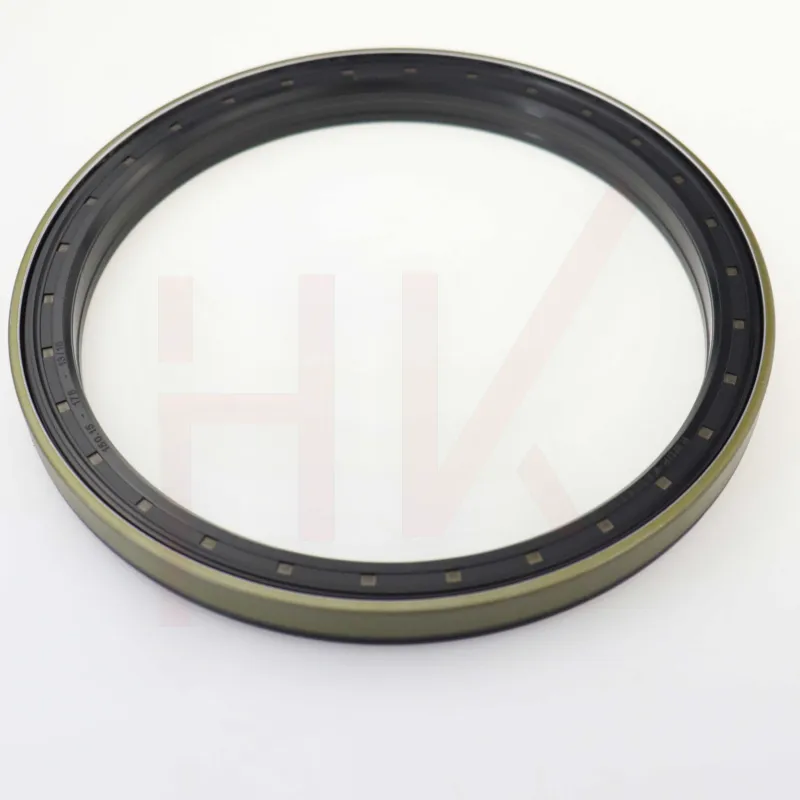Dis . 18, 2024 01:25 Back to list
skeleton oil seal
Understanding Skeleton Oil Seals Importance, Types, and Applications
Oil seals are critical components in various machinery and automotive applications, designed to prevent the leakage of lubricants while keeping contaminants out. Among the various types of oil seals, the skeleton oil seal has gained considerable attention for its efficiency and versatility. This article delves into the significance of skeleton oil seals, their design characteristics, application areas, and maintenance tips.
What is a Skeleton Oil Seal?
A skeleton oil seal, also known as a metal skeleton seal or retaining seal, features a metallic or plastic outer casing and a rubber elastomer sealing lip. The design typically incorporates a rigid structure that remains stable under pressure and high-temperature conditions while maintaining flexibility due to the elastomeric material. This hybrid composition enables the skeleton oil seal to withstand extreme operational environments, making it a preferred choice in many mechanical applications.
Importance of Skeleton Oil Seals
Skeleton oil seals play a crucial role in maintaining the efficiency of machinery and vehicles. Here are a few reasons why they are essential
1. Leak Prevention The primary function of an oil seal is to prevent lubricant leakage. By effectively sealing the spaces between rotating and stationary components, skeleton oil seals help maintain the fluid levels necessary for optimal performance.
2. Contaminant Protection These seals act as barriers against dust, dirt, and other contaminants, preventing them from entering the machinery. This protection is critical to prolonging the life of both the lubricant and the equipment itself.
3. Enhanced Performance By minimizing friction and wear, skeleton oil seals contribute to the enhanced performance of engines and machines. They help maintain consistent operational efficiency while reducing the risk of mechanical failures.
4. Cost-Effectiveness By preventing leaks and contamination, skeleton oil seals can significantly reduce maintenance costs and downtime due to repairs. Their durability often results in a longer lifespan compared to traditional seals.
Types of Skeleton Oil Seals
Skeleton oil seals come in various designs tailored to specific applications
. The major classifications are1. Single Lip Seals These seals feature a single sealing lip and are commonly used in low-pressure environments. They are effective in maintaining oil retention while offering limited resistance to dirt ingress.
skeleton oil seal

2. Double Lip Seals With an additional sealing lip, double lip skeleton oil seals provide enhanced protection against contaminants and are suitable for environments exposed to more aggressive operational conditions.
3. Spring-loaded Seals Some skeleton oil seals integrate a spring mechanism to maintain lip contact with the shaft, ensuring a tighter seal. This design is beneficial in high-speed applications where increased pressure is needed to prevent leakage.
Applications of Skeleton Oil Seals
Skeleton oil seals are versatile components used across a wide range of industries
- Automotive They are commonly found in engines, gearboxes, and differential assemblies, ensuring smooth operation by retaining oils and preventing leaks. - Industrial Machinery Skeleton oil seals are used in pumps, motors, and compressors to protect bearings and other sensitive components from contamination. - Aerospace In aircraft systems, these seals ensure operational reliability in high-stakes environments where leaks could lead to catastrophic failures. - Manufacturing They are employed in conveyor systems and various machinery to maintain the integrity of lubricants.
Maintenance Tips for Skeleton Oil Seals
To ensure the longevity and efficiency of skeleton oil seals, consider the following maintenance tips
1. Regular Inspections Routinely check for signs of wear, leaks, or abnormal noises around the seal.
2. Proper Installation Follow manufacturer guidelines during installation to avoid damage to the seal or housing.
3. Lubrication Ensure that the seal area is adequately lubricated to minimize friction and wear on the sealing lip.
4. Environmental Considerations Protect seals from harsh chemicals and extreme conditions that could degrade the material over time.
Conclusion
Skeleton oil seals are essential components that contribute significantly to the reliable operation of various machinery and vehicles. By understanding their importance, types, applications, and maintenance practices, industries can enhance productivity, reduce costs, and ensure the longevity of their equipment. As technology advances, the design and materials used in skeleton oil seals will likely evolve, but their fundamental role in machinery will remain indispensable.
-
The Trans-formative Journey of Wheel Hub Oil Seals
NewsJun.06,2025
-
Graphene-Enhanced Oil Seals: Revolutionizing High-Pressure Oil Sealing
NewsJun.06,2025
-
Future of Hydraulic Sealing: Advanced Intelligent TCN Oil Seals
NewsJun.06,2025
-
Don’t Let a Broken TCV Oil Seal Ruin Your Day
NewsJun.06,2025
-
Bio-Inspired Dust Seals for Better Sealing Performance
NewsJun.06,2025
-
Biodegradable and Sustainable Hydraulic Seal Materials
NewsJun.06,2025
-
Top Oil Seal Solutions for Your Industrial Needs
NewsMay.22,2025
Products categories
















